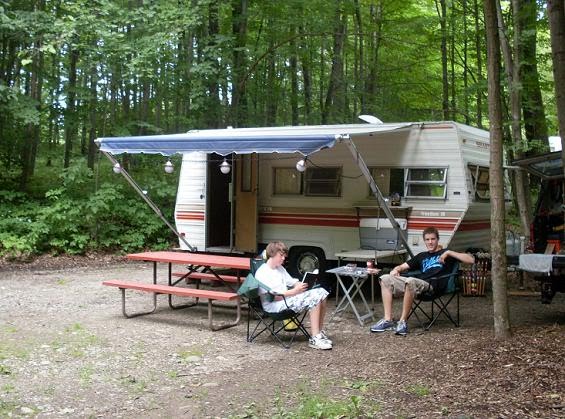Foremost of these: draw me in! Make me want to read whatever it is you've written. Maybe your title does the job. More often your first sentence provokes success or failure. If you can't bait the hook, you can't catch me as a reader. "Dan had just three weeks to live, but he didn't know that the day he won the Mega-Millions Jackpot." There, don't you want to keep reading?
Once you've snared a reader you must work your literary butt off to keep him (or her, of course). Keep your sentences reasonably short. Take your reader deeper into the story as quickly as possible. To continue the popular fishing metaphor, this is called 'setting the hook.' Make me care about "Dan" right away. Don't tell me the color of his hair or describe the jut of his chin! Tell me his flighty girlfriend left him waiting at a bus stop, so he went into a newsstand to kill time. (That's when he bought that fateful ticket, obviously.)
Here's a good "rule" no matter what: leave your fancy writing style at the door. Certainly, you have a 'voice' unique and wonderful. Just don't distract me with it, please. I want to find out why Dan will be dead soon; I don't particularly care about your astounding vocabulary. This always works: read some of what you've written aloud. Read it to a friend. Do you sound ridiculous, stilted, stodgy, or arrogant? A good friend will help you see that, before you get too heavily invested in your 'style.'
Rule number four is: okay, there are a couple of real rules after all. Let's lump them together so we can get it over with. (Yes, silly, you can end a sentence with a preposition if you want to. It's okay, really.) The two rules you must include are typically titled, "character" and "conflict."
Give me a character I can love or hate, or one I can relate to because he or she is so much like me. Then put your character (or characters; you can have more than one) in jeopardy. That's nuts-and-bolts stuff, not rocket science or anything earth-shaking. If you try to ignore this basic advice, very few readers will follow you to your final sentence.
This brings us to rule number five: the rest is up to you. You, and only you, can take me inside your imagined world. You may accomplish this with clever plotting, with vivid sensory detail, with careful use of foreshadowing, with humor, with fabulous insight into the human condition. Whatever. If you have followed the first four "rules" and if you can tell a tale at all, then you will reel in your readers almost effortlessly. The net with which you will land your big fish looks something like this: "I can't wait to read more!" There is no greater reward for a writer than that one priceless sentence. Now go cut some bait!
copyright 2007 - all rights reserved
See this story as it appears on Helium.com
Want to dig a little deeper? Leave a comment here, or have a look at How to Analyze a Short Story for more ideas.
In a future installment I'll look closer at creating characters your readers will want to meet.





.JPG)
+newcrop+09.jpg)
.jpg)






+edit.jpg)




